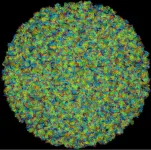(Press-News.org) Bottom Line: The MEK inhibitor trametinib (Mekinist) was an effective treatment for pediatric patients with relapsed or refractory juvenile myelomonocytic leukemia (JMML) enrolled in a phase II clinical trial, with seven of 10 patients alive after a median of two years.
Journal in Which the Study was Published: Cancer Discovery, a journal of the American Association for Cancer Research (AACR)
Authors: The senior author is Mignon Loh, MD, who is the director of the Ben Towne Center for Childhood Cancer Research and the head of the Division of Pediatric Hematology, Oncology, Bone Marrow Transplant, and Cellular Therapy at Seattle Children’s Hospital.
The first author is Elliot Stieglitz, MD, who holds the William Fries II Endowed Professorship in Pediatric Oncology at the Benioff Children’s Hospital at the University of California San Francisco (UCSF).
Background: JMML is an extremely rare and aggressive blood cancer that is typically diagnosed in infants and toddlers. The current standard of care is hematopoietic stem cell transplant (HSCT), with or without prior chemotherapy, but post-transplant relapse is common, according to Loh.
Without a second transplant, about 90% of patients die within two years, Loh noted.
“We’re subjecting these very young children to HSCT, which is one of the most intensive cancer treatments we have available,” said Stieglitz.
“If that treatment doesn’t work, the only option is to try again with the exact same therapy,” he added. “Unfortunately, only 30% of patients have a long-term response to a second transplant.”
Since the growth of JMML cells was shown to be dependent on the RAS/MAPK cellular signaling pathway, Loh, Stieglitz, and colleagues hypothesized that inhibiting MEK, a protein within this pathway, may be an effective alternative to HSCT. Prior studies, led by co-author Kevin Shannon, MD, the Roma and Marvin Auerback Distinguished Professor in Pediatric Molecular Oncology at UCSF, demonstrated that MEK inhibitors, including trametinib, showed antitumor activity in JMML mouse models.
How the Study was Conducted: Based on these findings, the researchers conducted a phase II clinical trial through the Children’s Oncology Group consortium to evaluate the safety and efficacy of trametinib in 10 pediatric patients with JMML. The median age of enrolled patients was 23.6 months, and all patients had JMML that harbored mutations in the RAS/MAPK pathway. At study entry, three patients had already experienced disease relapse after prior HSCT, and seven patients had JMML that was refractory to chemotherapy and had not undergone HSCT.
Results: Five of 10 patients had objective responses to trametinib, with two complete responses and three partial responses. Two additional patients experienced stable disease, and the remaining three patients had progressive disease.
All seven patients who experienced either stable disease or an objective response were alive at a median follow-up of 24 months, and four patients who were previously ineligible for first-line HSCT were able to undergo this treatment after receiving trametinib.
None of the patients experienced dose-limiting toxicities or cardiac dysfunction. There was one instance of grade 4 thrombocytopenia and seven grade 3 adverse events, including hypertension, neutropenia, anemia, and sepsis.
Molecular analyses of pre- and post-treatment patient samples demonstrated that, in addition to suppressing RAS/MAPK signaling, trametinib also downregulated inflammatory signaling—an unexpected finding that could explain the rapid resolution of many JMML-related symptoms in treated patients, Stieglitz noted.
Author’s Comments: “Our trial offered an option for parents who did not want to subject their children to a repeat HSCT and, in some cases, helped patients avoid HSCT entirely,” said Stieglitz. “The findings suggest that trametinib may be a less toxic alternative to HSCT for select patients.”
Loh added, “We may not eliminate HSCT for all patients, but this study shows that there is much more hope for JMML patients and their families than we previously thought. This is a really important message for families of young children with this disease.”
Based on these findings, the researchers have initiated a clinical trial to evaluate trametinib as a first-line treatment for JMML.
Study Limitations: Limitations of the study in relapsed or refractory JMML included the small sample size, the single-arm design, and the combined enrollment of patients who had and had not received prior HSCT.
Funding & Disclosures: The study was supported by funding from the National Cancer Institute, the St. Baldrick’s Foundation, Alex’s Lemonade Stand Foundation Center of Excellence, and the Leukemia & Lymphoma Society. Loh and Stieglitz declare no conflicts of interest.
END
Trametinib shows promise for children with relapsed or refractory JMML
2024-06-13
ELSE PRESS RELEASES FROM THIS DATE:
New way to spot beetle-killed spruce can help forest, wildfire managers
2024-06-13
A new machine-learning system developed at the University of Alaska Fairbanks can automatically produce detailed maps from satellite data to show locations of likely beetle-killed spruce trees in Alaska, even in forests of low and moderate infestation where identification is otherwise difficult.
The automated process can help forestry and wildfire managers in their decisions. That’s critical as the beetle infestation spreads.
The Alaska Division of Forestry and Fire Protection calls the spruce beetle “the most damaging ...
New study reveals combined use of Donepezil and Memantine increases the probability of five-year survival of Alzheimer’s disease patients
2024-06-13
Alzheimer's disease is the world’s most common neurodegenerative disease, affecting more than 50 million people globally. Alzheimer’s disease is also among the most fatal, landing as one of the top five causes of death worldwide. However, most currently available treatments are limited to alleviating the disease’s symptoms.
Now, a new study led by Chapman University researchers has explored the efficacy of using two existing Alzheimer’s disease drugs simultaneously to reduce mortality. It is one of the largest and ...
Number of over 65s with type 1 diabetes has almost tripled in 30 years
2024-06-13
The number of people aged 65 and older with type 1 diabetes increased from 1.3 million in 1990 to 3.7 million in 2019, while death rates fell 25% from 4.7 per 100,000 population in 1990 to 3.5 in 2019, finds an analysis of data from over 200 countries and regions in The BMJ today.
Overall, the results show that more people with type 1 diabetes are living longer. However, death rates fell 13 times faster in high income countries compared with low and middle income countries, indicating that substantial ...
Brain regions that bias the brain’s response to pleasure in bipolar disorder identified
2024-06-13
Momentary shifts in mood, even those lasting just a matter of seconds, profoundly alter the brain’s response to pleasurable experiences in people with bipolar disorder, finds a new study by UCL researchers.
Previous research shows that mood can make us experience events in more positive or negative light – irrespective of having bipolar disorder. When we are in a good mood, we are drawn to viewing things more favourably – causing the good mood to rollover and gain momentum.
Equally, when we are upset we get drawn into perceiving bad outcomes as even worse, causing us to remain upset or get even more upset.
This “momentum” in mood can bias how we perceive events ...
Researchers in US, Ukraine simulate cell activity at ‘breathtaking’ timescales
2024-06-12
LAWRENCE — A partnership between scientists at the University of Kansas and collaborators in Europe, including war-torn Ukraine, will result in computer models of biological cells likely to hasten health breakthroughs by simulating molecular interactions inside cells with near experimental accuracy at vastly longer timescales than similar efforts.
The research is supported by the National Science Foundation’s IMPRESS-U (International Multilateral Partnerships for Resilient Education and Science System in Ukraine) program that aims to “support excellence in science and engineering research, education, and innovation through international collaboration and ...
NSF CAREER grant to investigate design of fluorescent protein sensors with computer simulations that may aid human health and disease
2024-06-12
DETROIT — Alice Walker, Ph.D., assistant professor of chemistry in the College of Liberal Arts and Sciences at Wayne State University, received a Faculty Early Career Development (CAREER) award from the National Science Foundation to fund her research on applying computational chemistry to the understanding and rational design of new fluorescent protein (FP) sensors.
“A sensor, chemically speaking, is a molecule that turns on or off in response to certain stimuli,” said Walker. “Proteins are good sensors because they have a florescent element; they essentially glow in the dark in response to when it touches something. ...
Study shows politicians deny misdeeds because we want to believe them
2024-06-12
Why do politicians lie and deny when they are caught up in political scandal?
According to a newly published study led by a University of Nebraska–Lincoln political scientist, the answer may be that their supporters prefer a less-than-credible denial to losing political power and in-group status because of a discredited standard-bearer.
“The driving question of our research is whether people are actually incentivizing politicians to deny wrongdoing and escape accountability,” said Pierce Ekstrom, assistant professor of political science at Nebraska.
“Certainly, there’s a very strong norm ...
Case study reveals important new details about rare second cancers related to CAR-T therapy
2024-06-12
WASHINGTON – A new detailed analysis of a patient’s second cancer after receiving CAR-T therapy for the initial cancer provides rare but important insights intended to offer helpful guidance for oncologists and pathologists about the clinical presentation and pathologic features involved in a CAR-T related second cancer.
The finding is reported June 13, 2024, in the New England Journal of Medicine.
CAR-T therapy is described by many as a new and promising treatment for blood cancers. CAR-T therapy is made from a patient’s ...
Risk of secondary cancers after CAR-T cell therapy low, according to large Stanford Medicine study
2024-06-12
A large study by researchers at Stanford Medicine has found that the risk of secondary blood cancers after CAR-T cell therapy — a cell-based cancer treatment that exploded on the scene in 2017 as a treatment for intractable blood cancers — is low, despite a Food and Drug Administration warning.
In November 2023, the FDA issued a warning about a risk of secondary cancers — particularly blood cancers — that may be associated with CAR-T cell therapy. The warning was preceded by a rising tide of ...
Mouse study identifies unique approach for preventing life-threatening complications after spinal cord injury
2024-06-12
COLUMBUS, Ohio – In response to stressful or dangerous stimuli, nerve cells in the spinal cord activate involuntary, autonomic reflexes often referred to as “fight or flight” responses.
These protective responses cause changes in blood pressure and the release of stress hormones into the blood stream. Normally, these responses are short-lived and well-controlled, but this changes after a traumatic spinal cord injury.
A first-ever study published in the journal Science Translational Research identifies a ...



